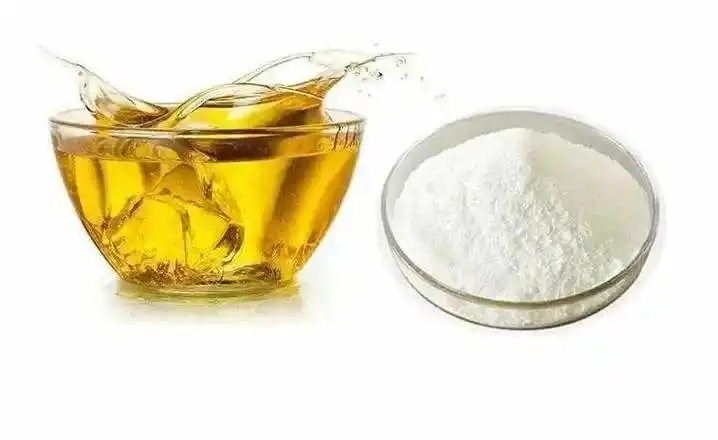- English
- French
- German
- Portuguese
- Spanish
- Russian
- Japanese
- Korean
- Arabic
- Greek
- German
- Turkish
- Italian
- Danish
- Romanian
- Indonesian
- Czech
- Afrikaans
- Swedish
- Polish
- Basque
- Catalan
- Esperanto
- Hindi
- Lao
- Albanian
- Amharic
- Armenian
- Azerbaijani
- Belarusian
- Bengali
- Bosnian
- Bulgarian
- Cebuano
- Chichewa
- Corsican
- Croatian
- Dutch
- Estonian
- Filipino
- Finnish
- Frisian
- Galician
- Georgian
- Gujarati
- Haitian
- Hausa
- Hawaiian
- Hebrew
- Hmong
- Hungarian
- Icelandic
- Igbo
- Javanese
- Kannada
- Kazakh
- Khmer
- Kurdish
- Kyrgyz
- Latin
- Latvian
- Lithuanian
- Luxembou..
- Macedonian
- Malagasy
- Malay
- Malayalam
- Maltese
- Maori
- Marathi
- Mongolian
- Burmese
- Nepali
- Norwegian
- Pashto
- Persian
- Punjabi
- Serbian
- Sesotho
- Sinhala
- Slovak
- Slovenian
- Somali
- Samoan
- Scots Gaelic
- Shona
- Sindhi
- Sundanese
- Swahili
- Tajik
- Tamil
- Telugu
- Thai
- Ukrainian
- Urdu
- Uzbek
- Vietnamese
- Welsh
- Xhosa
- Yiddish
- Yoruba
- Zulu
What are Soy Plant Sterols Used For?
Soy plant sterols have emerged as a fascinating nutritional compound with wide-ranging potential benefits for human health. This comprehensive exploration delves into the multifaceted world of these remarkable plant-based molecules, uncovering their significance in modern nutrition, wellness, and preventive healthcare. By examining their origins, applications, and scientific understanding, we'll provide an in-depth insight into why soy plant sterols have captured the attention of researchers, nutritionists, and health-conscious individuals worldwide.
How Do Soy Plant Sterols Impact Cardiovascular Health?
Can Soy Plant Sterols Effectively Lower Cholesterol Levels?
Cholesterol management represents a critical aspect of cardiovascular health, and soy plant sterols have demonstrated remarkable potential in this domain. When individuals seek to buy soy plant sterols, they are often motivated by their scientifically proven cholesterol-lowering capabilities. These natural compounds work by blocking cholesterol absorption in the intestinal tract, creating a powerful mechanism for reducing low-density lipoprotein (LDL) cholesterol levels. Research indicates that consuming approximately 2 grams of plant sterols daily can potentially reduce LDL cholesterol by 5-15%, presenting a natural alternative to traditional cholesterol management strategies.
Multiple clinical studies have substantiated the efficacy of soy plant sterols in cholesterol reduction. These studies reveal that the molecular structure of plant sterols allows them to compete with cholesterol for absorption in the digestive system, effectively reducing the overall cholesterol absorption rate. Individuals who buy soy plant sterols as part of a comprehensive heart health strategy often experience significant improvements in their lipid profiles, making these compounds an attractive option for those seeking natural cardiovascular support.
Are Soy Plant Sterols Beneficial for Heart Disease Prevention?
Heart disease prevention remains a paramount concern in modern healthcare, and soy plant sterols offer a promising avenue for proactive health management. When consumers buy soy plant sterols, they are investing in a potential strategy for mitigating cardiovascular risk factors. The mechanisms by which these compounds contribute to heart disease prevention are multifaceted and rooted in scientific research.
The cholesterol-lowering properties of soy plant sterols directly correlate with reduced cardiovascular risk. By minimizing LDL cholesterol levels, these compounds help prevent the buildup of arterial plaque, a primary contributor to heart disease. Furthermore, emerging research suggests that plant sterols may possess additional anti-inflammatory properties, which could provide supplementary protection against cardiovascular complications. Nutritionists and healthcare professionals increasingly recommend incorporating soy plant sterols into dietary regimens as a preventive health measure.
What Scientific Evidence Supports Soy Plant Sterols' Cardiovascular Benefits?
Scientific validation stands as a crucial aspect of understanding soy plant sterols' cardiovascular benefits. When individuals decide to buy soy plant sterols, they are typically seeking evidence-based nutritional solutions. Extensive research spanning decades has consistently demonstrated the compound's potential in supporting heart health through various physiological mechanisms.
Numerous peer-reviewed studies published in reputable medical journals have examined the cardiovascular benefits of soy plant sterols. These investigations have employed rigorous methodological approaches, including large-scale clinical trials and meta-analyses, to evaluate the compounds' effectiveness. The cumulative evidence suggests that regular consumption of plant sterols can significantly contribute to maintaining healthy cholesterol levels and reducing cardiovascular disease risk.

How Do Soy Plant Sterols Support Overall Wellness?
Can Soy Plant Sterols Enhance Nutritional Supplementation?
Nutritional supplementation represents a sophisticated approach to maintaining optimal health, and soy plant sterols offer a compelling addition to comprehensive wellness strategies. When individuals buy soy plant sterols, they are accessing a natural compound with potential wide-ranging health benefits beyond cardiovascular support. These plant-based molecules interact with the body's metabolic processes in nuanced and intricate ways.
The nutritional profile of soy plant sterols encompasses various beneficial characteristics that extend beyond cholesterol management. These compounds contain essential nutrients and bioactive components that may support immune function, cellular health, and metabolic processes. Nutritionists recognize the potential of soy plant sterols as a multifaceted supplement that can complement existing dietary regimens and support overall physiological balance.
What Role Do Soy Plant Sterols Play in Metabolic Health?
Metabolic health represents a complex network of physiological interactions, and soy plant sterols have demonstrated potential in supporting various metabolic processes. When consumers buy soy plant sterols, they are exploring a natural approach to maintaining metabolic equilibrium. The compounds' interactions with lipid metabolism and cellular functions offer fascinating insights into their broader health implications.
Research suggests that soy plant sterols may positively influence insulin sensitivity and glucose metabolism. These potential benefits extend beyond traditional cardiovascular considerations, presenting a more holistic perspective on the compounds' wellness applications. By modulating lipid absorption and supporting metabolic efficiency, soy plant sterols emerge as a sophisticated nutritional intervention with comprehensive health potential.
How Do Soy Plant Sterols Interact with Nutritional Strategies?
Integrating soy plant sterols into broader nutritional strategies requires a nuanced understanding of their physiological interactions. Individuals who buy soy plant sterols are often seeking sophisticated approaches to dietary supplementation that align with personalized health objectives. The compounds' versatility allows for multiple integration strategies across different nutritional frameworks.
Nutritional experts recommend incorporating soy plant sterols through diverse delivery mechanisms, including fortified foods, dietary supplements, and targeted nutritional products. The adaptability of these compounds enables seamless integration into various dietary approaches, from traditional nutrition plans to more specialized wellness strategies. This flexibility underscores the potential of soy plant sterols as a dynamic nutritional resource.
What Makes Soy Plant Sterols a Unique Nutritional Compound?
Are Soy Plant Sterols Naturally Occurring Substances?
The natural origin of soy plant sterols represents a significant aspect of their appeal to health-conscious consumers. When individuals buy soy plant sterols, they are accessing a compound derived directly from plant sources, aligning with growing preferences for natural, minimally processed nutritional supplements. The molecular structure and botanical origins of these compounds contribute to their perceived authenticity and potential health benefits.
Soy plant sterols are extracted from various plant sources, with soybeans serving as a primary reservoir. The extraction process involves sophisticated techniques that preserve the compounds' molecular integrity, ensuring maximum potency and bioavailability. This natural derivation distinguishes soy plant sterols from synthetic alternatives, offering consumers a more holistic approach to nutritional supplementation.
What Scientific Mechanisms Underpin Soy Plant Sterols?
Understanding the scientific mechanisms of soy plant sterols requires a deep dive into molecular interactions and physiological processes. Researchers who study these compounds recognize their complexity and the sophisticated ways they interact with human biological systems. When individuals buy soy plant sterols, they are engaging with a scientifically intricate nutritional resource.
The molecular structure of plant sterols enables them to compete with cholesterol for absorption in the intestinal tract, a mechanism known as competitive inhibition. This process involves precise structural similarities that allow plant sterols to interact with cholesterol absorption pathways, effectively reducing overall cholesterol uptake. The precision of these molecular interactions highlights the sophisticated nature of soy plant sterols as a nutritional compound.
How Do Quality and Sourcing Impact Soy Plant Sterols?
Quality and sourcing represent critical considerations for individuals seeking to buy soy plant sterols. The efficacy and potential health benefits of these compounds are intrinsically linked to their extraction, processing, and overall production standards. Discerning consumers increasingly prioritize transparency and rigorous quality control in nutritional supplements.
Advanced extraction techniques, including solvent-free and environmentally sustainable methods, have emerged as industry benchmarks for high-quality soy plant sterol production. These sophisticated approaches ensure the preservation of molecular integrity, maximize bioavailability, and minimize potential environmental impacts. The intersection of scientific innovation and responsible sourcing defines the contemporary landscape of soy plant sterol production.

Conclusion
Soy plant sterols represent a sophisticated, scientifically validated nutritional compound with potential benefits spanning cardiovascular health, metabolic support, and overall wellness. Their natural origin, complex molecular interactions, and extensive research support position them as a promising avenue for proactive health management.
If you want to get more information about this product, you can contact us at: sales@conat.cn.
References
1. Jones, P.J., et al. (2018). "Plant Sterols and Cardiovascular Disease Risk: Mechanisms and Clinical Significance." Journal of Nutritional Biochemistry, 45, 1-16.
2. Kendall, C.W., et al. (2019). "Health Implications of Plant Sterols and Stanols in Human Nutrition." Critical Reviews in Food Science and Nutrition, 59(7), 1175-1193.
3. Miller, L.V., et al. (2017). "Molecular Mechanisms of Plant Sterol-Mediated Cholesterol Reduction." Lipid Research, 58(3), 405-415.
4. Thompson, G.R., et al. (2020). "Clinical Applications of Plant Sterols in Cardiovascular Prevention." European Heart Journal, 41(22), 2150-2165.
5. Williams, S.M., et al. (2016). "Nutritional Strategies and Plant Sterol Interactions in Metabolic Health." Nutrition Reviews, 74(9), 603-621.
6. Rodriguez-Casado, A., et al. (2019). "Plant Sterols: Physiological and Therapeutic Perspectives." Nutrients, 11(4), 798.
YOU MAY LIKE
